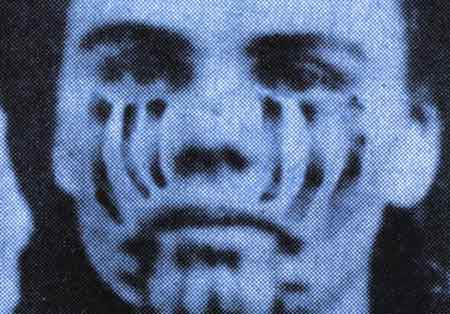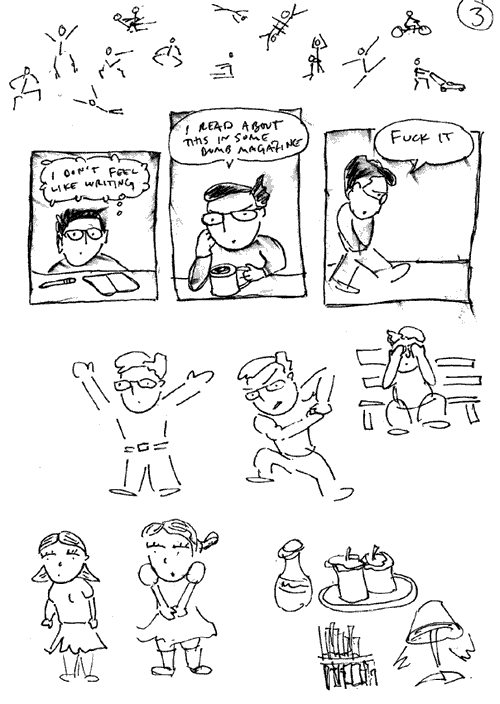
THE BELIEVER has an article this month on “literary tattoos,” but what’s most interesting about it is the stuff about “our nation’s first tattooed white woman,” Olive Oatman, who was “released in California after four years’ captivity with Mojave Indians. Oatman was ‘repatriated’ (probably against her will) in 1856 and resurfaced wearing a tribal tattoo on her chin, which riveted the American public.”
Oatman, thirteen, and her younger sister, Mary Ann, seven, were captured in 1851 by Yavapais Indians who killed her family in southern Arizona (then Mexico) as they were traveling west on a wagon train from Illinois. The girls lived as slaves to the Yavapais for a year, until the Mojaves, who felt sorry for them, bought them and installed them in the family of a subchief, who treated them as his own. They were tattooed as part of a typical Mojave puberty ritual that guaranteed their entrance into heaven. Mary Ann died during a famine, but Olive lived for four years among the Mojaves until the U.S. Army rescued her—by force—in early 1856. Tanned, tattooed, and wearing only a bark skirt, she was virtually unrecognizable as a white woman when she was delivered, on the east bank of the Colorado River. As her rescuers approached, she sat in the sand, covered her face, and cried.
There’s a bunch of great stuff on Oatman, in the article, and I highly suggest you read it. There’s also an Elmore Leonard connection:
It was, oddly enough, crime writer Elmore Leonard who would return to Oatman and her tattoo in his 1982 Western story, “The Tonto Woman.” (Oatman’s face even appeared on the cover of his 1998 collection, The Tonto Woman and Other Stories.) Leonard, who had clearly done his historical homework, modified the details of her history by marrying her off before her kidnapping (in reality she was only thirteen when she was abducted), giving her twelve (not four) years with the Mojaves, and making her husband a cold, rich rancher who forces her, on return, to live alone in the desert instead of on his ranch with him. (By contrast, Oatman went to school and married a man she met postcaptivity).
But the main detail Leonard expands upon is her tattoo. His captive, Sarah Isham, asks the Mojaves to tattoo not just her chin, but also her cheeks: “I told them if you’re going to do it, do it all the way. Not like a blue dribble,” she recalls to Ruben Vega, a Mexican horse thief poised to steal her husband’s cattle. Impressed that she insisted on her own marks, he tells her to remember, “There is no one else in the world like you.” A fellow outlaw, he even touches the tattoos and says, “You’re in there, aren’t you? Behind these little bars. They don’t seem like much. Not enough to hold you.”
I read “The Tonto Woman” way back in early undergrad when I was trying to get into Leonard, and loved it. Read the article, then go get THE TONTO WOMAN.


